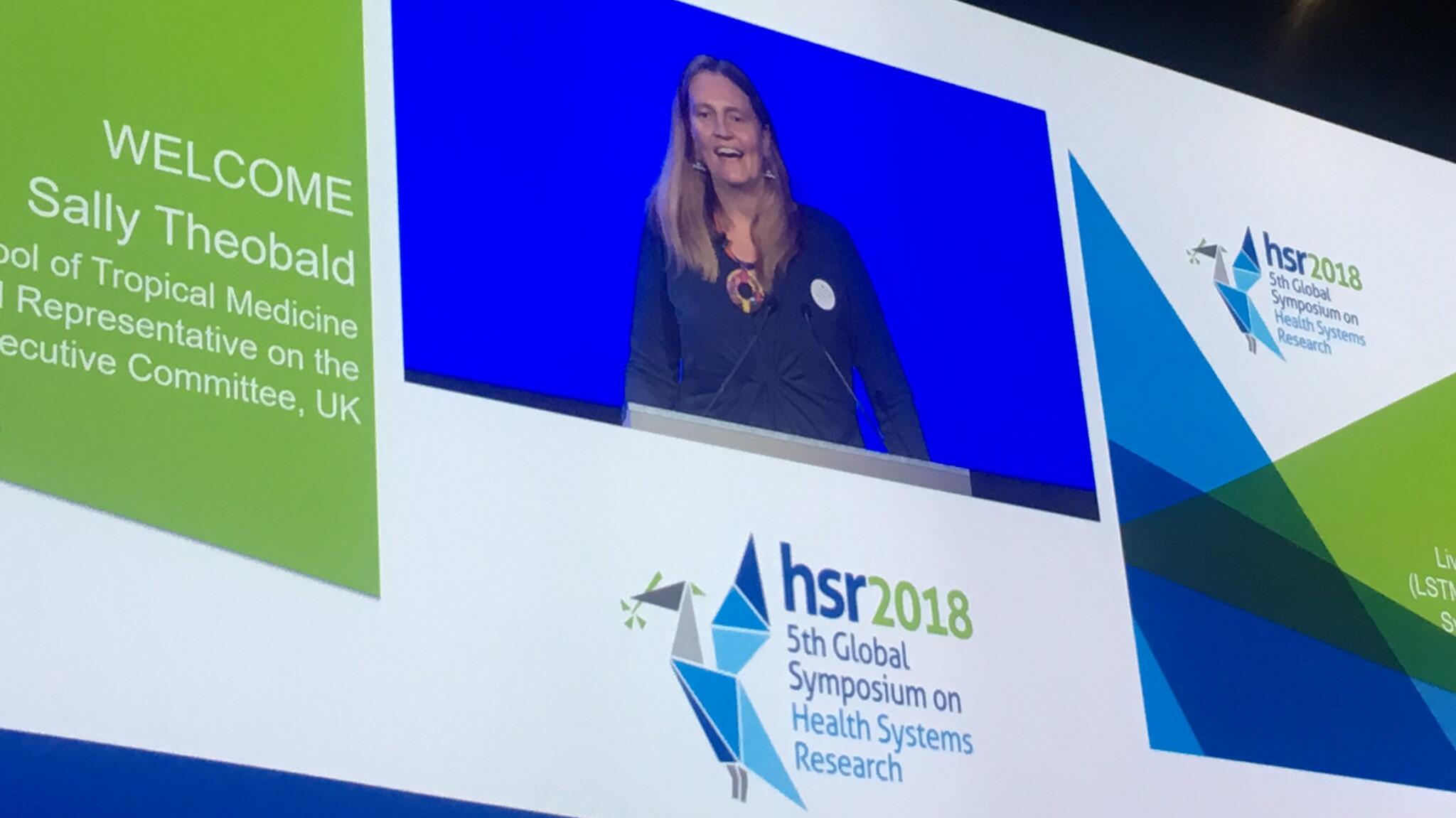
While acting as one of the local hosts for the Fifth Global Symposium on Health Systems Research (HSR 2018(link is external)) taking place in Liverpool, LSTM’s Professor Sally Theobald is first author on a paper(link is external) published in the journal The Lancet this week, looking at the importance of implementation research in global health.
Professor Theobald, who is part of the local organising committee and was a plenary speaker for the conference’s opening event, worked with colleagues from all over the world in putting together this health policy paper, which uses various case studies to examine the importance of implementation research both for disease-specific interventions and those for broader health systems strengthening. With case studies covering HIV and smallpox as well as health systems in Ghana and Afghanistan the paper looks at the need for implementation research, particularly in pursuit of the Sustainable Development Goals (SDGs) and national commitments for universal health coverage.
“The aim of the paper is to present the characteristics that define implementation research and their application in global health through case studies.” Explained Professor Theobald: “The case studies highlight the complex nature of health systems and emphasise the importance of understanding context. They show the wide range of implementation research processes in terms of scale, topics, methods and range of impacts in global health, while illustrating how this research can affect health outcomes and also inform policy.”
The paper reflects many of the issues being examined at the HSR 2018 Symposium, which has as a theme Advancing health systems for all in the SDG era. The Symposium includes several sessions and discussions led by members of LSTM’s Faculty, including the Capacity Research Unit (CRU) and LSTM Senior Lecturer Tim Martineau's led consortia Perform 2 Scale and Rebuild.
As one of the hosting organisations, LSTM has been involved in ensuring that delegates make the most of their time in Liverpool. Many took up the opportunity to take a look into the fascinating history of public health in the city with Professor John Ashton leading a public health walk. Some of the innovative firsts in health featured in the walk have also been reflected in the Symposium’s Photovoice Exhibition which is made up of images of various interventions and situations photographed by delegates in advance of the meeting. As well as being displayed in the exhibition space at the conference centre, a selection of the images has also been open to the public at the nearby Museum of Liverpool.